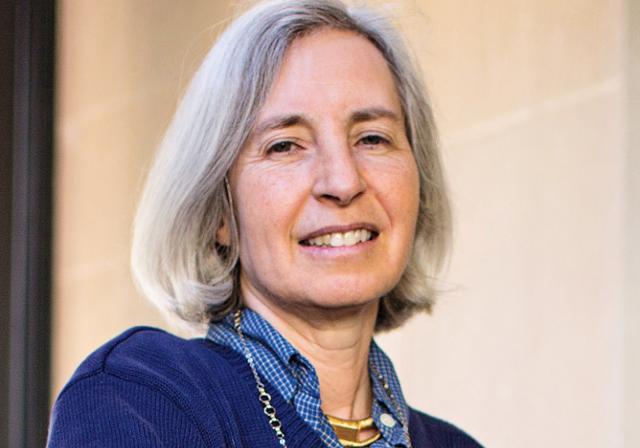The Thomas R. Kline School of Law of Duquesne University will present “Preconditions for Constitutional Democracy: Social Trust, Respecting Differences, and Avoiding Entrenchment” on Thursday, October 31, 2024. Martha Minow, former dean and 300th Anniversary University Professor of law at Harvard Law School, will present the lecture. Minow is an expert on constitutional law, human rights, and legal advocacy for marginalized individuals and groups.
 The lecture will focus on constitutional law and its effects on democracy in the United
States. The lecture is set for noon in Duquesne University’s Power Center and is part
of the Duquesne Kline School of Law’s John and Liz Murray Excellence in Scholarship
Lecture Series. Before the lecture, Duquesne University President Ken Gormley will
present Minow the John and Liz Murray Excellence in Scholarship Award.
The lecture will focus on constitutional law and its effects on democracy in the United
States. The lecture is set for noon in Duquesne University’s Power Center and is part
of the Duquesne Kline School of Law’s John and Liz Murray Excellence in Scholarship
Lecture Series. Before the lecture, Duquesne University President Ken Gormley will
present Minow the John and Liz Murray Excellence in Scholarship Award.
“With the upcoming election, reflection on constitutional law and democracy makes this event particularly relevant,” said Kate Norton, associate dean for faculty scholarship, director of clinical and international programs and associate professor of law.
Richard Heppner, associate dean for faculty scholarship and associate professor of law, agreed. He said, “The subject is timely and worthwhile. It highlights the complex considerations when discussing the fragile intersection of constitutional law and our democracy.”
Register for the CLE and CJE credits that are available for this presentation at no cost.
Presentation Synopsis
Beneath growing perceptions of constitutional crisis and democratic fragility in the United States lies a fundamental conundrum. Critical preconditions for effective self-government are either weak or missing in action, and our constitutional system at least for now stands in the way of actions to strengthen or build those preconditions.
This lecture will focus on several essential predicates for constitutional democracy that are in jeopardy: social trust; respect for people across differences in religion, race, class, and other markers of identity; and guards against entrenching parties, groups, and interests so that self-government by the whole populace can be meaningful. Topics will include gerrymandering of elective districts, financial contributions and lobbying of elected officials, as well as the design of the electoral college and the Senate. Other predicates for constitutional democracy that will be discussed include access to education, reliable sources of news, and day-to-day safety.
About the Speaker
Martha Minow has taught at Harvard Law School since 1981, where she served as dean for eight years. An expert on constitutional law, human rights, and legal advocacy for marginalized individuals and groups, Minow’s many books include Saving the News: Why The Constitution Calls for Government Action to Preserve the Freedom of Speech (2021); When Should Law Forgive? (2019); In Brown’s Wake: Legacies of America’s Constitutional Landmark (2010); Partners, Not Rivals: Privatization and the Public Good (2002); and Between Vengeance and Forgiveness: Facing History After Genocide and Mass Violence (1998). Recent publications include “Distrust of Artificial Intelligence: Sources and Responses from Computer Science and Law,” with Cynthia Dwork, Daedalus (2022), and “Social Media, Distrust, and Regulation,” with Newton Minow, Nell Minow, and Mary Minow, in Lee. C. Bolling and Geoffrey R. Stone, eds., Social Media, Freedom of Speech, and the Future of Our Democracy (2022).
Minow serves as chair of the board of directors for the MacArthur Foundation and co-chair of the Access to Justice project of the American Academy of Arts and Sciences; previously she has served on the Center for Strategic and International Studies Commission on Countering Violent Extremism and on the Independent International Commission Kosovo. Her five-year partnership with the federal Department of Education and the Center for Applied Special Technology worked to increase access to the curriculum with digital resources for students with disabilities and resulted in legislative initiatives and a voluntary national standard opening access to curricular materials for individuals with disabilities.
Her honors include the Ruth Bader Ginsburg Lifetime Achievement Award from the Women in Legal Education section of the American Association of Law Schools (2024); the Freedom of the Press Career Achievement Award from the Reporters Committee for Freedom of the Press (2023), the Sargent Shriver Equal Justice Award (2016); the Joseph B. and Toby Gittler Prize, Brandeis University (2016); and nine honorary degrees (in law, education, and humane letters) from schools in three countries.
News Information

